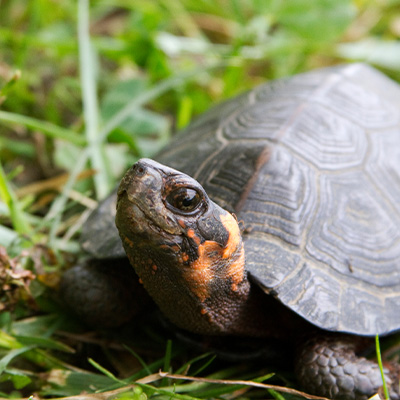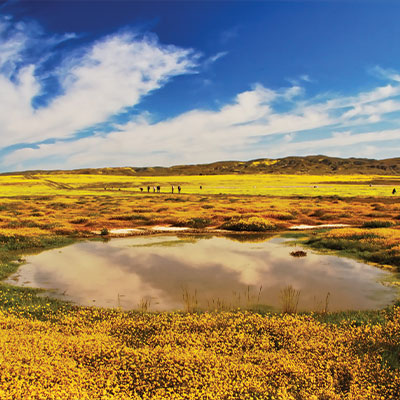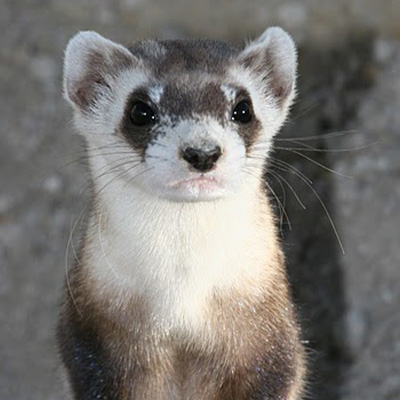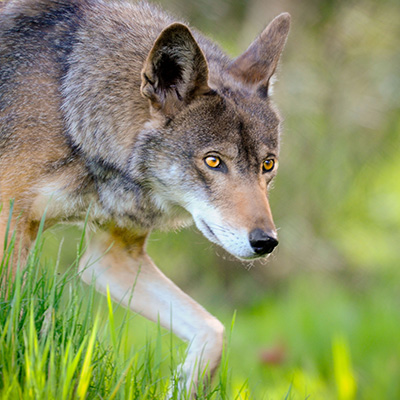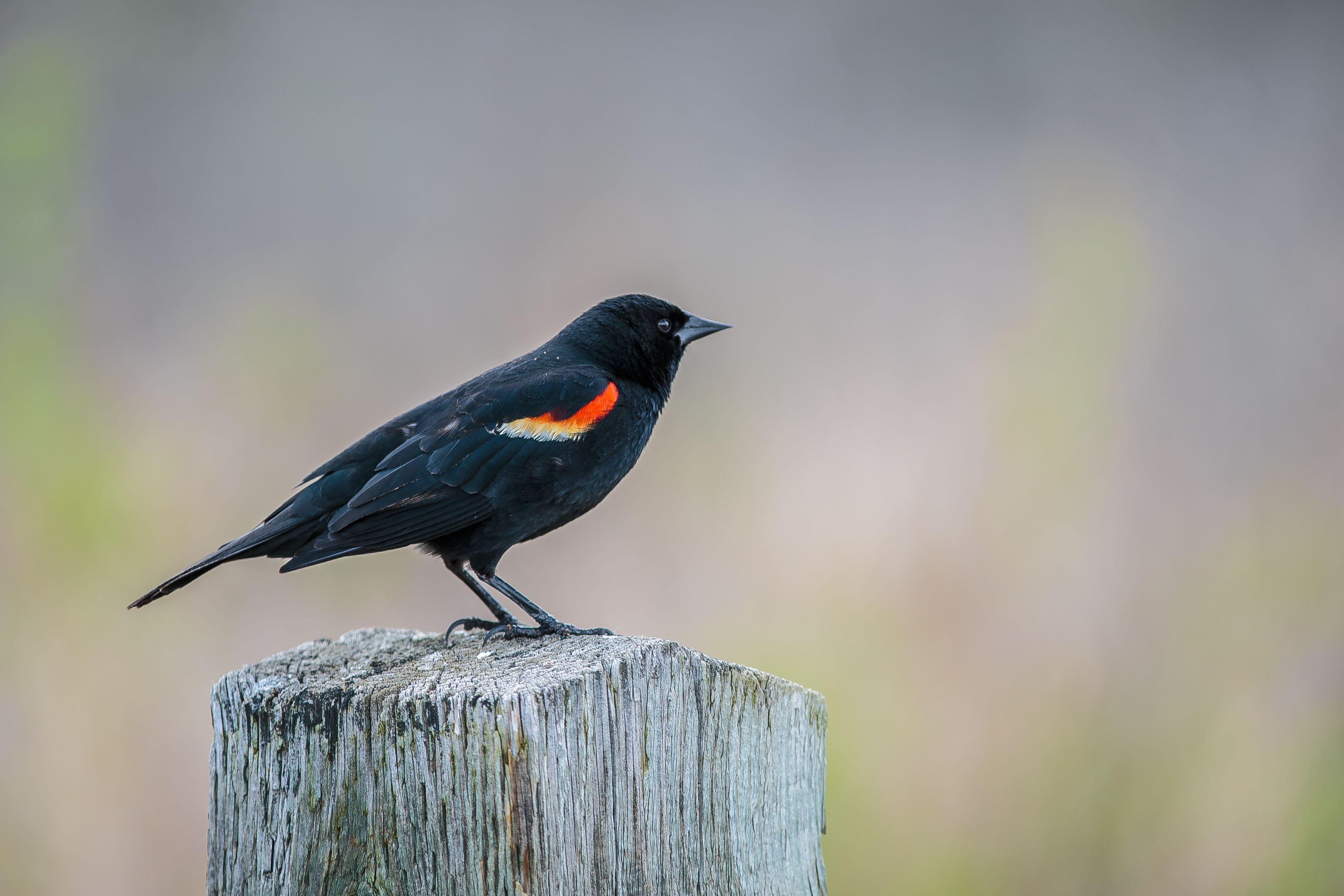
Adopt the tricolored blackbird
Agelaius tricolor
Critically Imperiled according to NatureServe
Habitat: Freshwater marshes (breeding) and open pasture (migrating and winter)
Diet: Mostly insects, sometimes seeds and grains
Behavior: Highly gregarious, forming breeding colonies in the thousands
Native to the far western United States and northern Baja California, Mexico, the tricolored blackbird closely resembles its near-relative, the red-winged blackbird, but is distinguished by white edging on the striking patch of red on its wing. This bird is what’s known as a “colonial nester,” forming breeding colonies of sometimes tens of thousands of birds in freshwater marshes primarily in the Central Valley of California. Due to the draining of its nesting habitat to expand agricultural production, the population of the tricolored blackbird has dropped dramatically over the past century. The US Fish & Wildlife Service reviewed the status of the tricolored blackbird in 2019 and determined that it did not qualify for listing under the Endangered Species Act because the current population of at least 100,000 individuals appears to be stable and threats have been ameliorated somewhat thanks in part to the California Endangered Species Act.
What You'll Get With Your Adoption
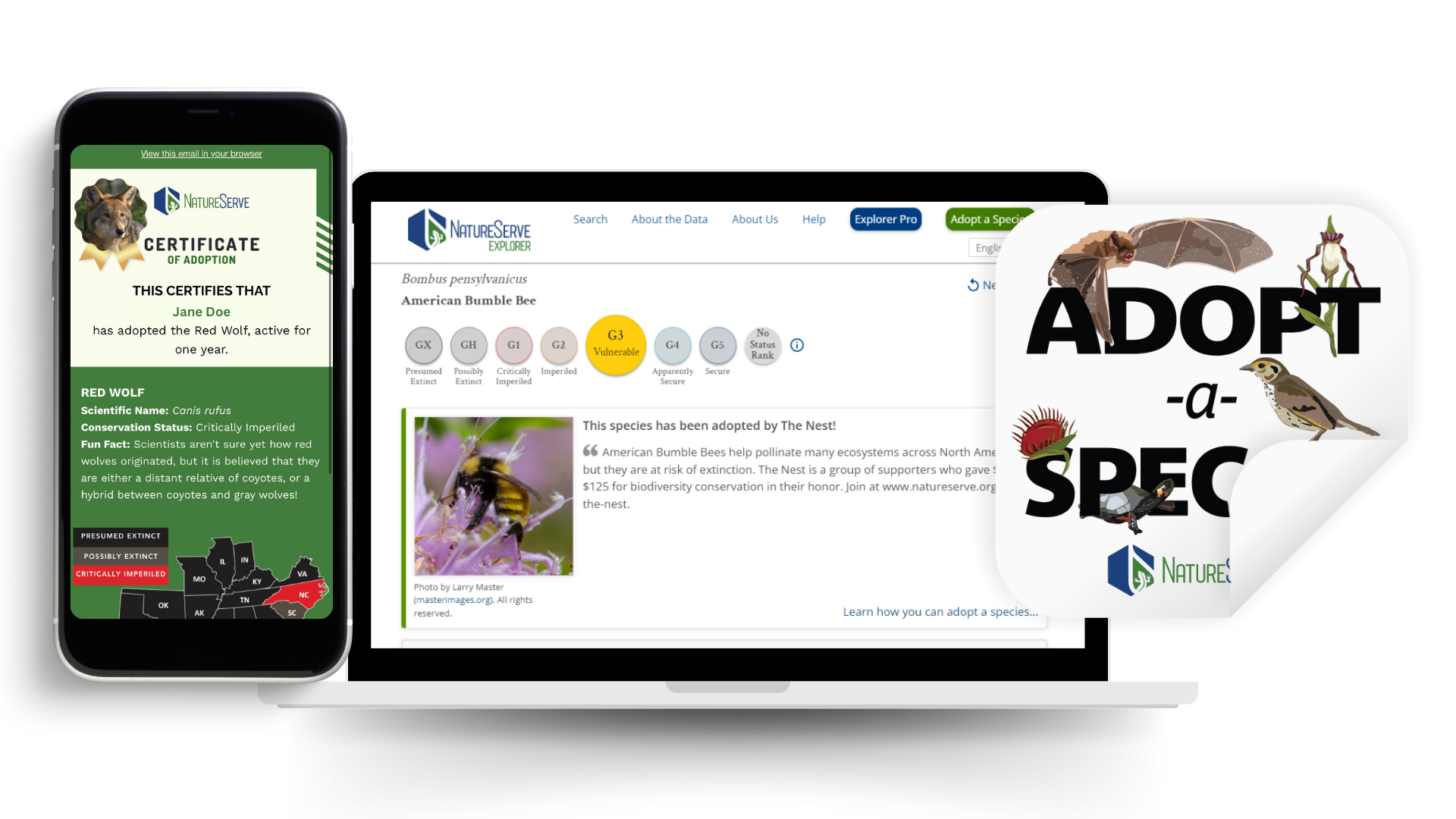
For a contribution of $25 or more, you are helping to protect our precious biodiversity. Your adoption will help update the featured species on NatureServe Explorer with an image and a description. You will receive a certificate of adoption, an Adopt-a-Species sticker, and a digital wallpaper of your species. Plus, next year you can vote on the new featured species for adoption!
Adopt a species for yourself or a loved one! Adoptions can be great way to celebrate birthdays, anniversaries, graduations, or holidays. When you gift a species, you’ll have the option to send the recipient a note letting them know of your thoughtful gesture.
Other Adoptable Species
Other Ways to Support NatureServe

Give Monthly

Planned Giving

